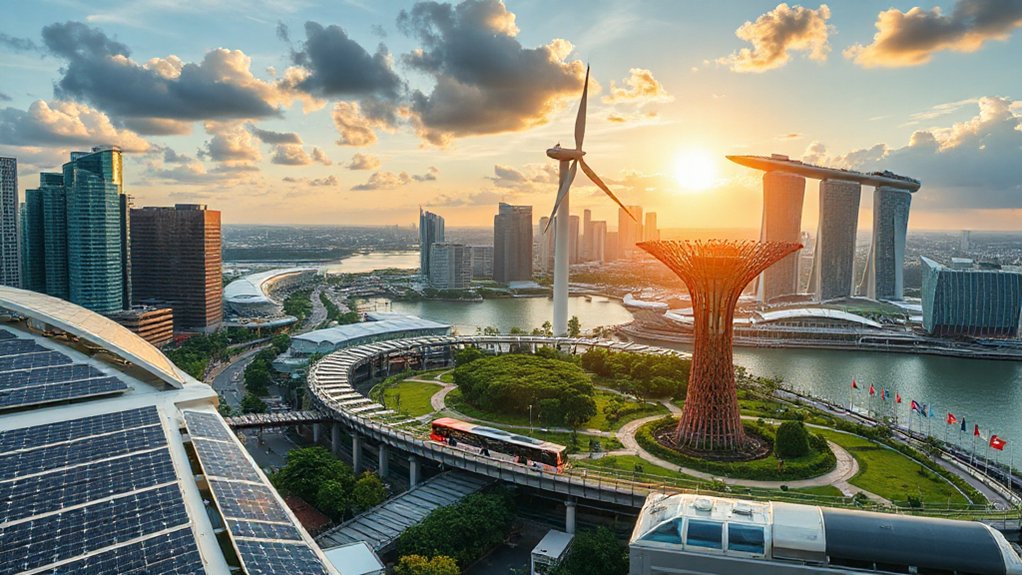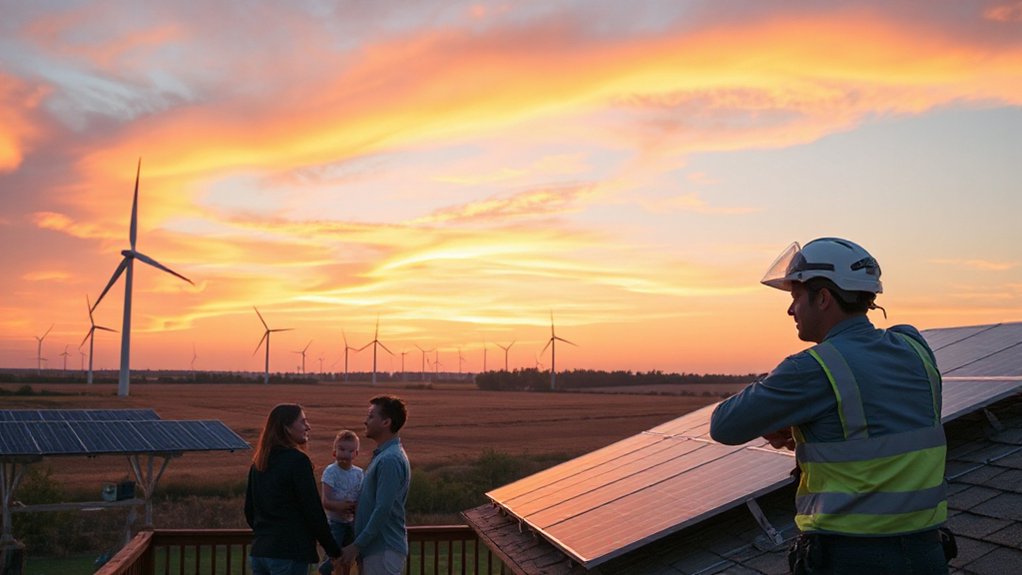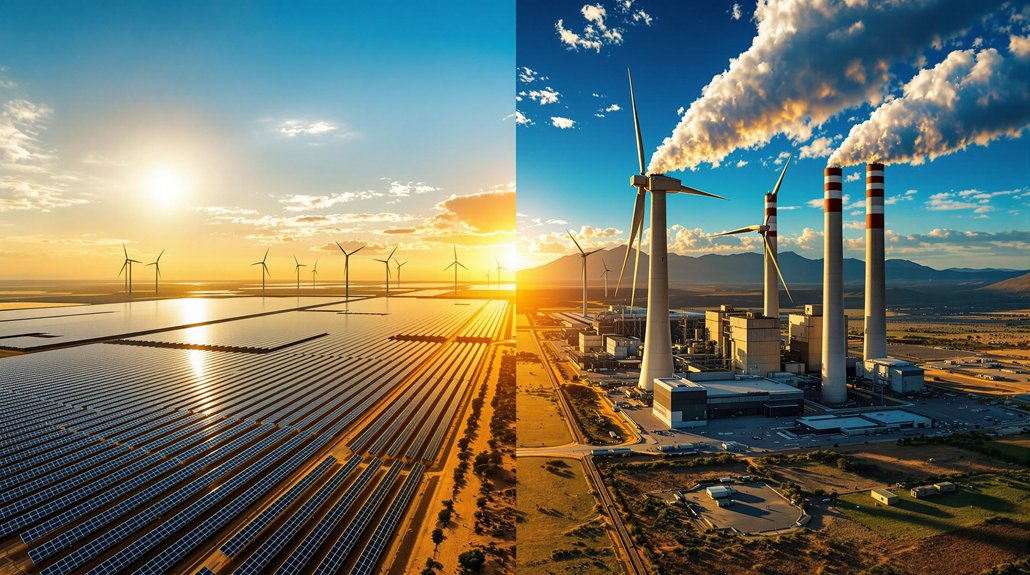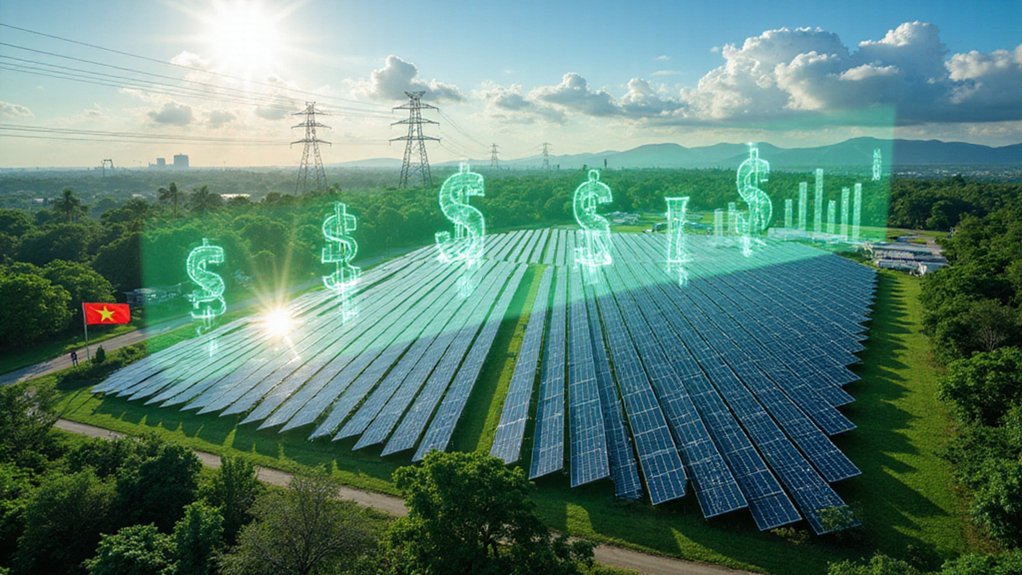While most countries merely talk about climate change, Singapore is charging ahead with a green revolution that’s transforming the island nation into an environmental powerhouse. The tiny city-state isn’t just implementing token green measures—it’s quadrupling solar energy deployment by 2025. Floating solar farms? Check. AI-powered smart grids? Already happening. This isn’t your grandparents’ environmental plan.
The government isn’t playing around either. Tax incentives, subsidies, and actual regulatory frameworks with teeth are making renewable adoption a reality, not just a PowerPoint presentation. They’ve set ambitious carbon reduction targets for 2030 and net zero by 2050. Unlike some countries (you know who you are), Singapore actually means it.
Singapore doesn’t just talk green—it delivers with real incentives, hard targets, and regulatory teeth behind its climate promises.
In 2025, Singapore is completely revamping its citizenship by investment program. The message is clear: bring your green tech startup here, or don’t bother showing up. They’re laser-focused on attracting entrepreneurs who can deliver real solutions in renewable energy and sustainable agriculture. The extensive implementation of IoT sensors for real-time energy monitoring represents a commitment to data-driven sustainability. This strategic reform is positioning the nation as a global environmental leader in sustainable urban development. Got skills in eco-innovation? Singapore wants you. Everyone else can wait in line.
The ripple effects are spreading throughout Southeast Asia. New bilateral partnerships announced for Q2 2025 are positioning Singapore as the region’s clean energy hub. They’re not just building fancy green buildings at home—they’re exporting expertise and funding green infrastructure projects across ASEAN countries.
Their approach to talent development is equally aggressive. The Skills Framework for Carbon Services and Trading isn’t some vague initiative—it’s creating actual careers. The country’s innovative training programs are providing workers with technical certifications similar to those driving job growth in other renewable markets. The National University of Singapore isn’t waiting around either, launching specialized certificates for carbon markets professionals.
Urban sustainability isn’t just a buzzword here. With targets to green 80% of all buildings by 2030, Tengah Forest Town stands as a showcase of what’s possible. Solar panels, EV charging stations, centralized waste collection—the works.
Singapore’s green revolution isn’t just ambitious—it’s already happening. The rest of ASEAN is taking notes. They should.
References
- https://timesofsingapore.com/singapores-green-energy-initiatives-in-2025-powering-a-sustainable-future/
- https://vnz.bz/articles/singapore-revises-citizenship-by-investment-to-prioritize-green-tech-startups-in-2025/
- https://www.edb.gov.sg/en/business-insights/insights/sustainability-updates-from-singapore-for-businesses-a-round-up-from-april-to-june-2025.html
- https://www.greenplan.gov.sg
- https://www.mas.gov.sg/news/media-releases/2025/gip-achieves-first-close-with-usd510-million-in-committed-capital
- https://www.khuranaandkhurana.com/2025/04/22/the-green-revolution-in-asean-sustainability-trends-and-innovations/
- https://aesthetichavens.com.sg/blog/singapores-green-revolution-2025-the-ultimate-guide-to-sustainable-homes-future-ready-buildings/
- https://carbonwire.org/carbon-initiatives/food-resilience-in-action-southeast-asias-blueprint-for-a-sustainable-tomorrow/
- https://initiatives.weforum.org/reskilling-revolution/singapore









